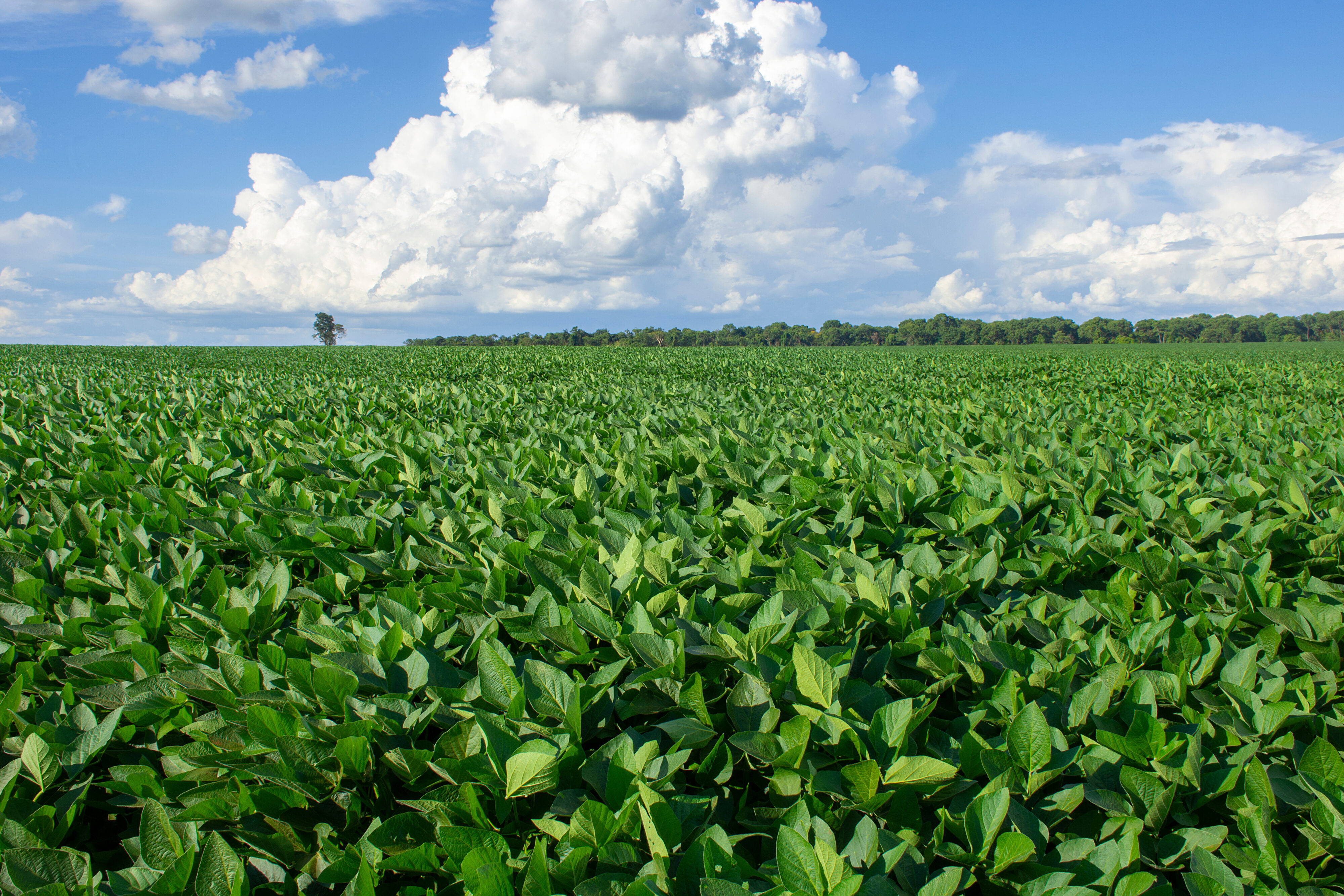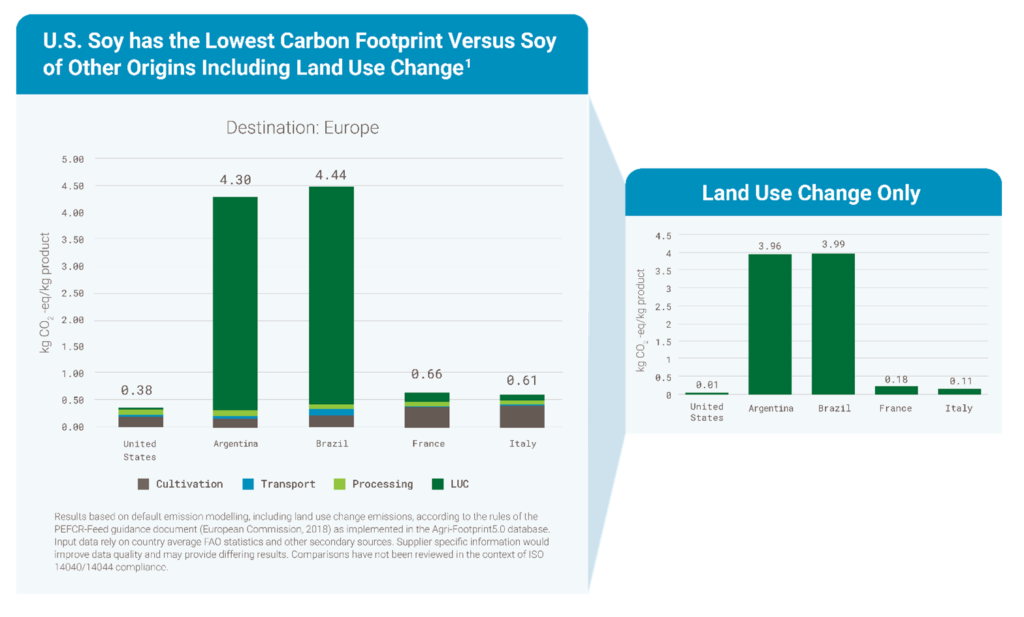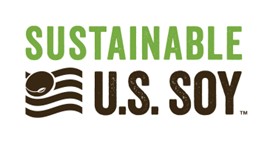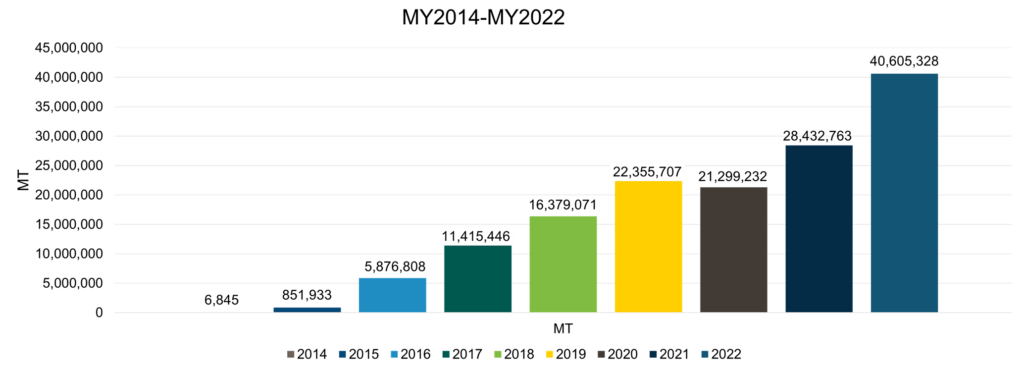
U.S. soybean farmers are widely recognized for their innovative solutions to the challenge of a changing climate. Through their commitment to sustainable agriculture, they are managing to produce more with fewer resources while at the same time supporting a healthy society and preserving the planet. As a result, U.S. Soy has the lowest carbon footprint, including land use change, compared with soy of other origins1.

This progress is being recognized globally, with an increasing number of food companies adopting the Sustainable U.S. Soy (SUSS) label as they shift procurement towards more sustainable supply chains. The SUSS logo is currently featured on more than 1,000 SKUs from 70 companies across the Americas, Greater China, Northeast Asia, and Southeast Asia.

We saw a great example of this in late 2022 when Ichiban soymilk started featuring the Sustainable U.S. Soy logo served on non-stop Vietnam Airlines flights from Ho Chi Minh City to San Francisco. By carrying the SUSS logo, Ichiban soymilk manufacturer ThaiCorp International can now leverage it to generate new sales and marketing opportunities as consumer demand for sustainable products continues to grow.
For international customers of U.S. Soy, certifications are critical. Importantly, they reassure customers that the products they are consuming are truly contributing to the sustainable development of the planet and society, while also helping to stem the challenge of greenwashing.
Verification of the sustainability of U.S. Soy is provided through the U.S. Soy Sustainability Assurance Protocol (SSAP), a program developed through a multi-stakeholder process in 2013 to meet international sourcing requirements. The verification covers all the laws and regulations that U.S. farmers must follow, as well as on-farm sustainability practices voluntarily implemented to ensure a sustainable supply of soy. The SSAP includes farm audits conducted by an independent third party – the Natural Resource Conservation Service of the U.S. Department of Agriculture (NRCS USDA).
For the 2022 marketing year, 60% of all soy exports from the U.S. had an SSAP certificate. The year-over-year growth has been dramatic. Shipments of verified sustainable U.S. Soy have increased from just over 851,000 metric tons in 2014 to more than 40 million metric tons in 2022.
Verified Sustainable U.S. Soy Shipments for Marketing Years 2014-2022

Customers of U.S. Soy around the world are also now able to better demonstrate their commitment to sourcing sustainable ingredients with the SSAP having expanded to allow the transfer of SSAP certificates up to four times. The change to the SSAP by Soy Export Sustainability, LLC, which is partially funded by the national soybean checkoff, allows customers to keep records of their sustainable U.S. Soy purchases, use these purchases to meet their ESG (Environmental, Social and Governance) goals, and report on their progress toward those goals. Importers can receive a certificate in their name from an exporter, the importer will then be able to transfer certificates to their customers. A new online database has been created enabling this functionality, and a total of 42 customers have registered to receive certificates to date.
FEFAC has confirmed that the U.S. Soy Sustainability Assurance Protocol (SSAP) passed stringent, independent benchmarking against its FEFAC Soy Sourcing Guidelines 2021, including criteria to confirm “conversion-free” soy, or crops that are produced without the need to convert forestland or natural habitats to farmland. SSAP has also earned Silver Level Equivalence when benchmarked with the Sustainable Agriculture Initiative Platform (SAI Platform)’s Farm Sustainability Assessment (FSA) 3.0 and is recognized by the Consumer Goods Forum’s Sustainable Soy Sourcing Guidelines and the Global Seafood Alliance’s Best Aquaculture Practices.
This story is partially funded by U.S. Soy farmers, their checkoff, and the soy value chain.
1 Blonk Consultants, Agrifootprint 2 Field to Market: The Alliance for Sustainable Agriculture, 2021. Environmental Outcomes from On-Farm Agricultural Production in the United States (Fourth Edition). ISBN: 978-0-578-33372-4
